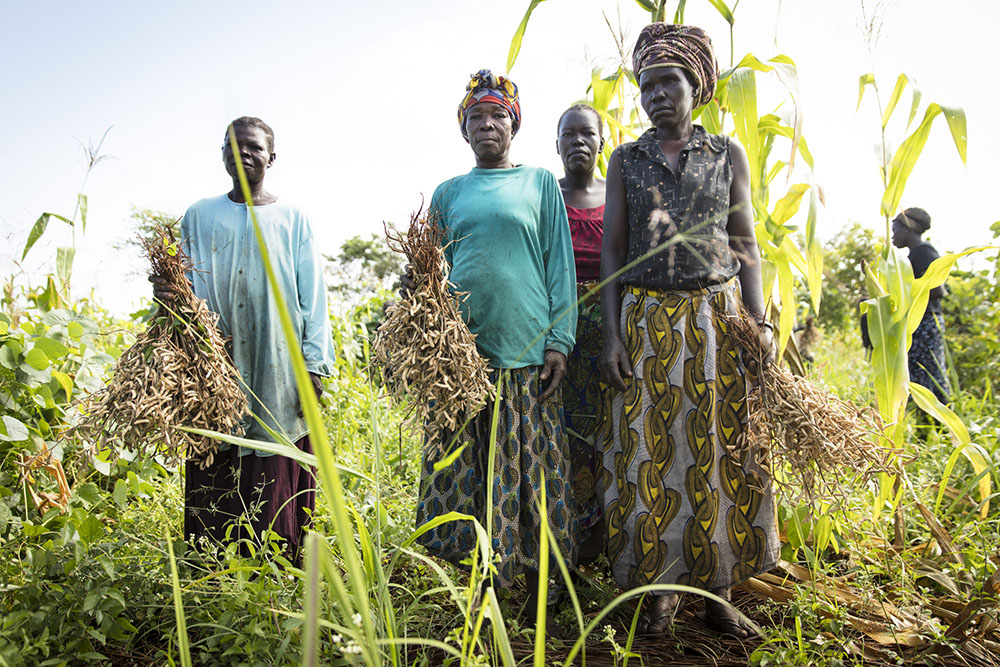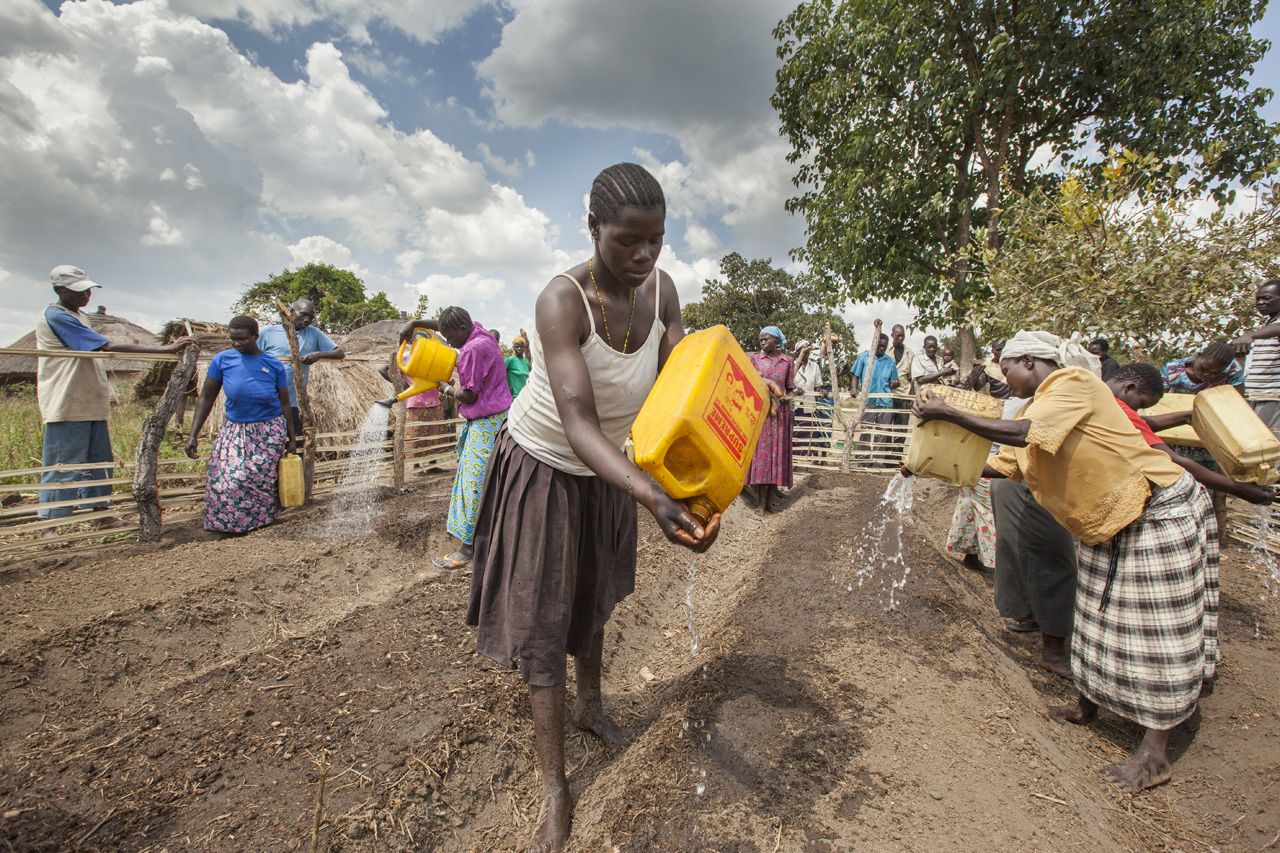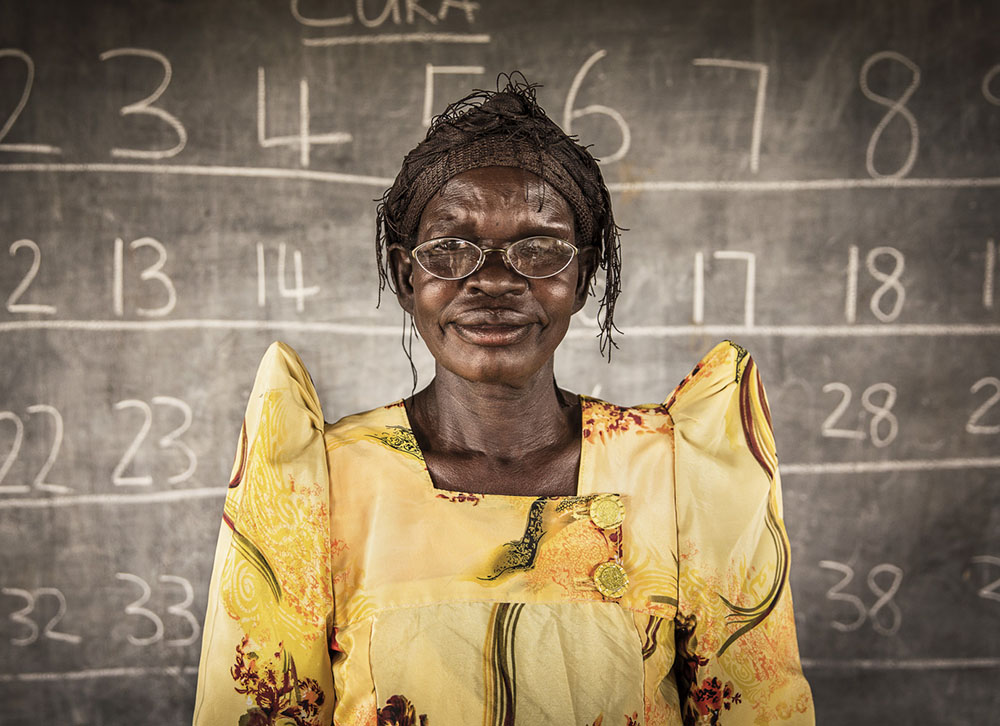Long term success comes from every woman having access to the transformative power of all of AWR’s programs working together. Our impact model is facilitated through consistent coaching and mentorship and happens within the sequencing of five programmatic pillars.
Capital + Skills + Education = Impact
Asset Transfers
Asset transfers are a centerpiece of the graduation model and help spur the creation of self-employment and financial stability. In AWR’s model, women receive first an asset transfer of the permagarden and the skills training needed to make it a generative asset. The skills training in regenerative agriculture includes an initial transfer of seeds and tree seedlings. Participants living in refugee camps receive additional support of agricultural tools and fencing materials for their gardens. Elderly participants that do not have the capacity to engage in large field crop production receive goats in lieu of agricultural training. All asset transfers are accompanied by training in how to manage them. AWR aspires to have transfers be concurrent to reduce the need to sell assets in emergency situations. Each participant is assigned a community mobilizer who provides technical support and encouragement.
Additionally, in the next phase of the model, participants get access to microfinance and savings through Village Savings & Loan Associations (VSLAs) groups. Each group receives a grant of $280 to provide start-up capital for loans and business investments. Women use these loans to buy tractors, cattle and other equipment that helps increase their farming businesses. With the additional income, they are able to pay for school fees, invest in livestock and crop production, build savings and support other small businesses – growing the local economy.
Christine received banana plants from AWR a few years back and training on how to care for and multiply them. Now she has a small banana plantation and can send her children to school. The combination of access to microfinance, skills training, assets and education is changing women’s life and breaking the cycle of poverty.
Skills Training – Regenerative Agriculture
Regenerative agriculture builds the soil and ensures AWR’s farmers have greater access to a diversity of food crops throughout the year. These practices also reduce erosion and suck carbon out of the air and store it back in the ground and in the trees. Due to the war and living in IDP camps, an entire generation unfortunately has lost their agricultural skills. AWR trains women on the principles behind water and soil management and helps them to develop a contextual understanding to design a more productive and regenerative system. AWR’s Field Crop and Permagarden programs are structured around the appropriate use of local resources, water conservation and long-term soil fertility measures to help farmers sustainability produce a diverse variety of nutritious annual and perennial crops. Strengthening the ecological base of their food system enables increased yields, greater access to food in times of seasonal hunger and a more resilient farm in the face of climate instability, and extreme weather events. Income from ongoing permagardens also allows participation in weekly savings group activities.
Adult Literacy
AWR is one of the largest providers of adult literacy in Northern Uganda. Based on the participatory REFLECT methodology, AWR’s Functional Adult Literacy (FAL) centers are dynamic community resources that build self-confidence and foster change. More than just a place to become literate, FAL centers help participants identify critical community issues and innovative ways to solve them. For example, the lack of trustworthy candidates in the last general election inspired 59 FAL students to run for public office, 37 won. Learners in the centers have also repaired boreholes, opened up new roads, started marketplaces and built community schools for their children.
Enrollment and completion of the full graduation program ensures women have an income producing asset, increase their crop yields, gain vital literacy skills, and accrue savings for school fees and healthcare. AWR empowers women for long-term success – stability and financial freedom provided by microfinance and savings programs, skills in regenerative agriculture and the transformative power of education. The cost per program participant from inception to graduation is approximately $1200.
Girls Education
How to Keep Girls in School
AWR’s Girls’ Education program is focused on reimagining a system where less than 1% of girls move on to secondary school from primary in this Northern region of Uganda. AWR is centered on changing persistent attitudes towards girl’s education and the cultural and customary traditions that keep girls from attending and excelling in school. We work together with parents, caretakers, schools and government officials to create and uphold this change. The program provides academic mentorship, textbooks and supplies, life skills and sanitary pads to 1,500 girls across Northern Uganda. Results from 2019 show 80% of girls in our program passing the Primary Leaving Exam. Demand for girls’ education is high as you will see below in the second option for collaboration around immediate needs. AWR strives to be able to meet the demand for these programs, as we firmly believe that the graduation program both starts and ends with education, helping to permanently break the cycle of generational poverty.
AWR’s Girls Education program is divided into two main components:
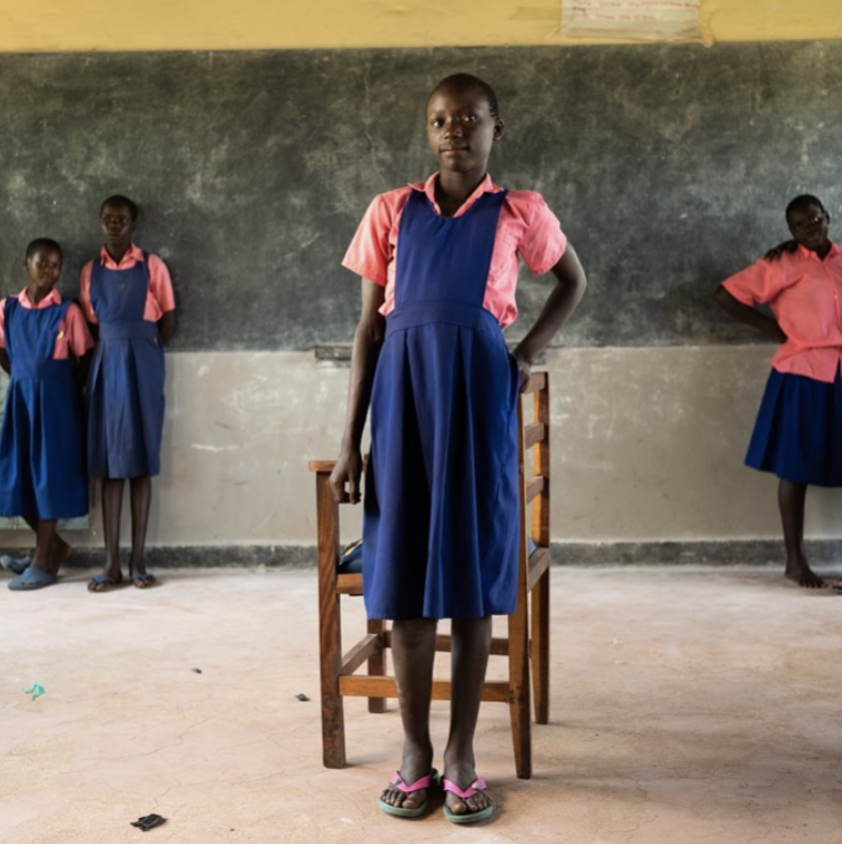
“My favorite subject is social studies. I want to be a lawyer because they earn a lot of money. I want money so I can help my mom. I will buy her food and clothes. I have eight siblings. There three girls and six boys. I am the 7th. Our father is not living with us anymore. He left.”
Nelly, 13 years old, in 5th grade
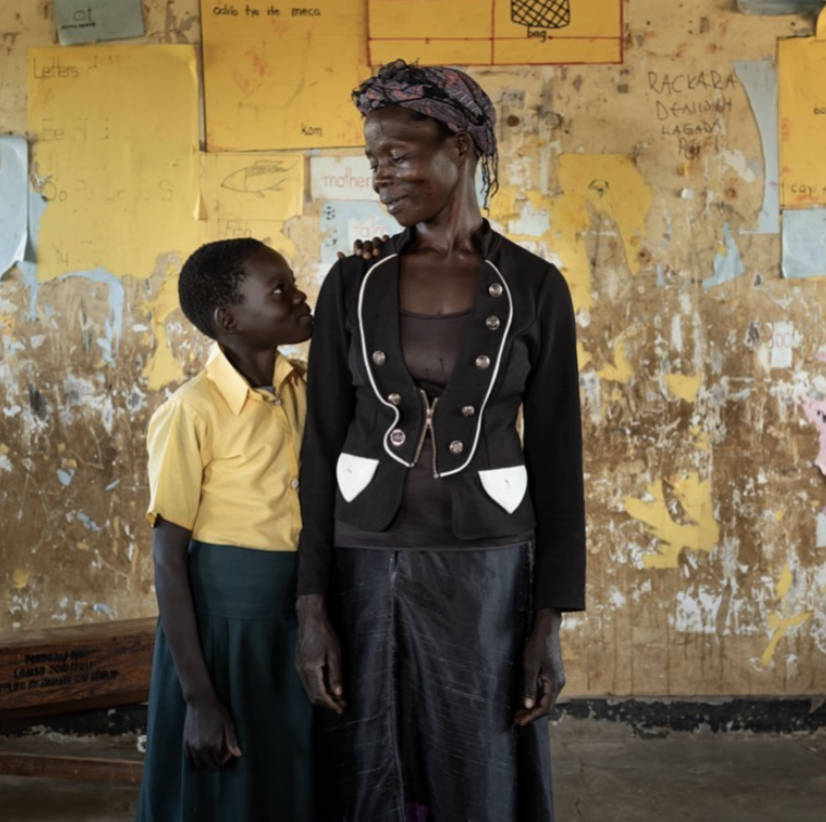
“I have seven children. Three are in school and it is a struggle for me to pay for school fees. My daughter Lakedi is 11 years old, in third grade, and part of AWR’s Girls Education Program. I have big hopes for her, she is a smart girl, very quick and she loves to learn. My husband had a motorcycle accident and died. I do garden work to support my family, but it is not enough. I hope you will continue support my child. With your help she will become something important in the future.”
Rose, 39 years old.






